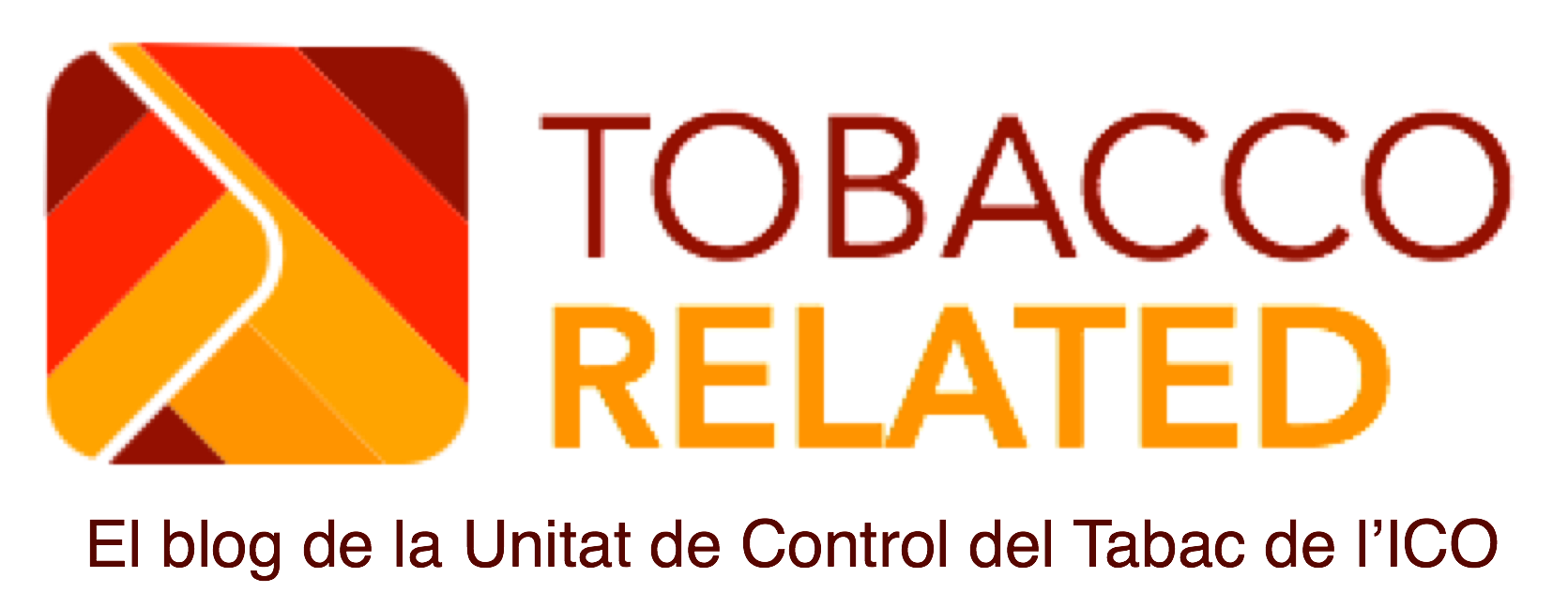Desarrollo de un programa de formación para promover la deshabituación al tabaco en los países de América Latina

Reproducimos a continuación la entrevista a Cristina Martínez, investigadora de la Unidad de Control del Tabaco del Institut Català d’Oncologia, publicada en el sitio web de GlobalBridges. Cristina Martínez se diplomó en enfermería y licenció en antropología en la Universitat de Barcelona, donde también se doctoró (programa de Medicina) con la tesis «Implementación y evaluación de políticas para el control del tabaquismo en los hospitales«. La Dra. Martínez coordina un proyecto para adaptar al contexto de varios países latinoamericanos un programa de formación on-line para profesionales sanitarios en deshabituación tabáquica desarrollado, para el que ha recibido una beca de investigación de la iniciativa GlobalBridges.
Developing a tobacco cessation training program in Latin American countries
Cristina Martínez is an associate researcher with the Catalan Institute of Oncology in Catalonia, Spain. She is leading a project, Development and Dissemination of a Tobacco Cessation Training Program for Healthcare Professionals in Spanish-speaking Countries — one of 19 project awarded grants through a partnership between Pfizer Independent Grants for Learning & Change (IGLC) and Global Bridges. The $2.3 million in grant awards are designed to increase tobacco cessation rates through healthcare professional training and advocacy in low- and middle-income countries.
Please tell us about your work within the tobacco control policy arena:
I am a public health and health policy professional with over 10 years of experience developing and implementing tobacco control programs and research in health care services. Although my interest in tobacco control came from much earlier, I started to work as a program coordinator for the Tobacco Control Unit at the Catalan Institute of Oncology (ICO) in 2004. The Catalan Institute of Oncology (ICO) is a Comprehensive Cancer Center. ICO’s approach to the disease is comprehensive, combining prevention, care, specialized training and research to reduce the impact of cancer.
For eight years, I coordinated a public health program across hospitals in Catalonia with the objective of implementing tobacco-free policies. The target of the program was very ambitious but, thanks to the work of our team, we increased the coverage of the program to 90 percent of Catalan hospitals and disseminated the model to 22 countries.
In addition, tobacco smoke-free policies advanced during that time in Spain and the project achieved a huge advance improving training activities, cessation interventions, and promotion initiatives among Catalan hospitals. My work as program coordinator allowed me to interact with health professional groups, policy-makers, and international networks. Additionally, this position gave me the opportunity to evaluate the different activities and programs introduced in hospitals.
Due to my personal commitment in improving the programs and with the support and encouragement of my research colleagues (and in particular of Prof. Fernández, my mentor and chief of the Tobacco Control Unit), I started my research career. After finishing my PhD studies, I pursued a postdoctoral fellowship at the Health Policy Department at the University of California San Francisco, where I contributed to the research of Prof. Guydish in regards tobacco control interventions among vulnerable populations (such as mentally ill and substance abuse populations).
On my return to home, I assumed a position as an Associate Researcher at ICO where I am developing several projects evaluating tobacco policy interventions in health care services. In particular, in the fall of 2014 our project “Fruitful” was awarded by IGLC and Global Bridges. This project is intended to develop and disseminate a tobacco cessation training program in three Spanish-speaking countries (Paraguay, Guatemala and Bolivia).
What is the main focus of your work?
Although the Tobacco Control Unit is working in several national and international projects in tobacco control, the Fruitful project stands out. The Fruitful team is composed by members of the Catalan Institute of Oncology and members of three hospital organizations in Paraguay, Guatemala and Bolivia.
Our aim is to adapt an existing tobacco cessation training program for health professionals developed by our group to the reality of the participant hospitals. The purpose is to reduce mismatches between the original characteristics of the training and those needed for the new context. Doing so however, requires careful planning and execution, as it is possible to make changes that enhance the program’s cultural appropriateness, local acceptance, and feasibility, while undermining its effectiveness in changing risky behaviors.
I am coordinating this implementation research project, including the process of the cultural adaptation, guiding partners of the three selected countries to detected differences in several areas:
- Language background;
- Characteristics of the hospitals and the community in which the program will be implemented;
- Bureaucratic factors, such as laws, regulations, or policies.
In addition, I am supervising all the steps we are following to obtain a quality training program. After the adaptation, I will give support to the implementation and dissemination of the training program to each participant organization.
We are also focused on the research part of this project. Thus, we are gathering baseline data about tobacco control policies undertaken within the organizations and trainers’ attitudes, knowledge and behaviors in tobacco cessation. These baseline data will be compared to the post training one to grasp before-after differences.
How would this be different from other efforts in the past, or how would it build upon other efforts?
This project is based on a consolidated partnership among the involved organizations. Past oncology projects have been undertaken with success among the four organizations. Partners share the common objective of reducing the burden of tobacco-related diseases in their territories and they will act as stakeholders.
The experience has shown that partnership building can overcome future setbacks in the process. This partnership involves the organizations and their governments developing a strong networking alliance.
Is this something that could be replicated elsewhere?
The project will explore the needed efforts required to spread this tobacco cessation training program among other hospitals from the three participant countries. We consider that once the adaptation will be done and the effectiveness proved, it will be feasible to offer the course to hospitals within the participant countries due to their share the same characteristics. Participant hospitals in the project will act as pilot organizations for the rest of the hospitals and we hope that this program will be spread as an innovation within the three countries.
Moreover, we would like to extend the training program to other Spanish-speaking countries after evaluating its effectiveness through the Fruitful project. However this maybe need of changes mainly in the content related to epidemiology of tobacco, due to this particular module is country specific.
What would be the ultimate goal of this project?
Our results are oriented to gain scientific evidence on the effectiveness of a “Brief intervention smoking cessation training program” for Spanish-speaking health professionals in low-and-medium-income Latino American (LA) countries. Our findings will determine whether:
- The proposed training increases hospitals’ implementation and engagement with tobacco control policies
- Health professionals’ increase their knowledge, attitudes and behaviors in tobacco cessation.
What are some of the challenges you have faced in your work?
So far, and after four months undertaking this project, we have identified barriers and opportunities in the development of this project. Some barriers include problems with the Internet connection in some LA countries that can frustrate a successful connection among the partners. To reduce this inconvenience, we have conducted meetings using several different channels of communications (Skype, GotoMeeting, Whatsapp, phone calls, emails, etc). In addition, we have duplicated calls and meetings when a partner was not able to connect.
Another identified barrier is the lack of epidemiological information in some countries that could be included in the training program. Some countries do not count with recent surveys on the National Smoking Prevalence and they only can provide data from one region, area or city. However, this data give us a good proxy of the magnitude of the epidemic in each of these countries.
Besides these barriers, we have found some opportunities. Participant organizations in this research have expressed that other organizations may be interested in this training.
In addition, partners have the potential to develop other future collaborative projects in tobacco control for upcoming calls. Although some partners have some cultural and language differences, we have demonstrated that we can collaborate in the design of a project and we will be willing to continue working together in creating materials, recommendations, and so on for Spanish-speaking countries.
What are some success stories as a result of your work?
Although is very soon to draw conclusions and we had success stories of our work. For instance, we have detected a great interest of managers of the three participant hospitals in tobacco control besides the activities comprised in the project. Managers have been also interested in knowing how to implement smoke-free environments, launch health promotion, and tobacco cessation intervention to smokers.
What do you ultimately hope to accomplish?
We would like to contribute to the control of the tobacco epidemic in LA countries. We know that if we provide health professionals with education and resources to stop smoking, they in turn could help their patients. We believe that our project works at the hospital organizational level and the grassroots level to sum efforts to stimulate the active role of health professionals.
Our ultimate goal is that health professionals in LA countries support and assist smoking cessation to help their patients to gain health.
(c) Global Bridges, hosted by Mayo Clinic (http://www.globalbridges.org/)







